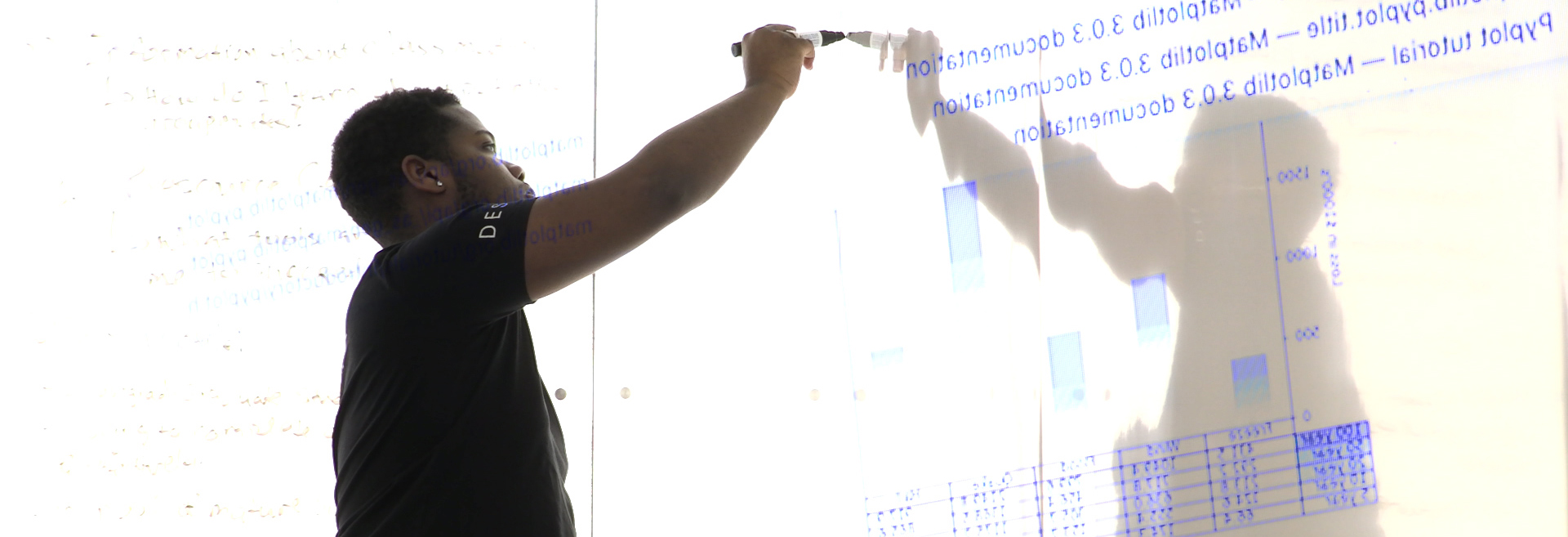UBC held its fifth learning analytics hackathon on March 29 and 30, bringing more than 100 students together to gain experience analyzing and visualizing educational data while exploring the emerging field of learning analytics.
A relatively new area for most universities, learning analytics involves analyzing the data that’s increasingly generated through online courses — such as assignment uploads and discussion forum posts — and then visualising that data in ways that can help improve learning and the student experience.
Sanam Shirazi, a data scientist and member of UBC’s Learning Analytics, Visual Analytics group, explains that learning analytics is ultimately about helping students and instructors make data-driven decisions. “The goal of learning analytics is to connect what we learn to actionable insights for instructors and students themselves,” Shirazi said.
The two-day event kicked off with a design-thinking workshop focused on encouraging students to reflect on their experiences at UBC and the problems they’d like to tackle using data. On day two, students were offered workshops that took them through each stage of a data analytics project, learning how to extract, analyze, and visualize data in a way that would be useful to other students. Students had the option of working with their own personal data from Canvas — UBC’s online learning platform — or data from a course created specifically for the Hackathon.
Shirazi has been involved in organizing several learning analytics hackathons to date. Some themes, she says, keep coming up year after year. Students tend to be particularly interested in building tools that help them find peers on campus who have shared interests or who are on a similar path. Time management apps are another favourite.
Xindi Wei, a UBC business and computer science student, worked alongside a group on a tool designed to help students make social connections. “We built a function that helps you find other students who you might want to be friends with, based on your shared courses,” Wei explained. If this type of tool were made available at UBC, it could be offered on an opt-in basis, allowing students to indicate whether they’re open to being contacted by potential study partners or friends.
Recent UBC Mining Engineering grad Surohit Tandon signed up for the Hackathon to receive an introduction to learning analytics. “I came to the Hackathon because I was really curious about what could be done with the learning analytics side of data analysis,” said Tandon. “I just wanted to get my feet wet and see what I could come up with.”
Tandon’s project focused on sentiment analysis. “I was trying to figure out how we could determine where a student’s message might be most appropriately classed when it comes to discussion categories,” explained Tandon. The goal for the tool was to save users time by allowing them to quickly find the discussion thread they’re looking for, without scrolling through endless posts.
Recognizing that not every student has the time or inclination to build their own learning apps, UBC’s Learning Analytics Project is working on building learning analytics tools for all UBC students. There’s currently an open call for student feedback on potential tools.
“We really want learning analytics to be a community process,” said Will Engle, a strategist with UBC Open Education Initiatives and one of the Hackathon’s organizers. “We want people to understand what the data is inside our systems and give students a view into how it’s being used… I’m hopeful that not only do they feel empowered in that, but that some of their ideas float back to the university as well.”
UBC’s next Learning Analytics + Canvas API Hackathon is coming up in the fall of 2019.
The Learning Analytics + Canvas API Hackathon took place on March 29 and 30 in the Sauder Learning Labs, a space that’s designed to facilitate teams in using critical thinking and analytical decision making to solve real-world problems. The event was hosted by the UBC Learning Analytics Project, UBC LAVA (Learning Analytics, Visual Analytics), the UBC Canvas API User Community (CAPICO), and Sauder Learning Services.

